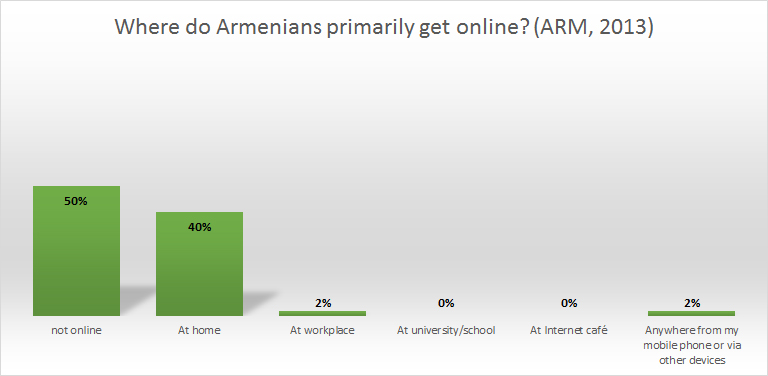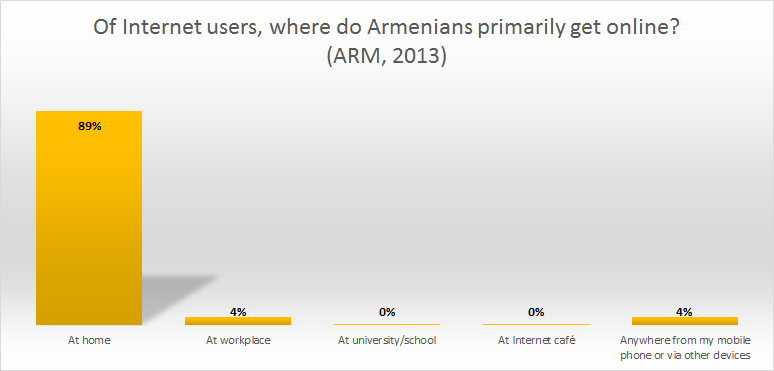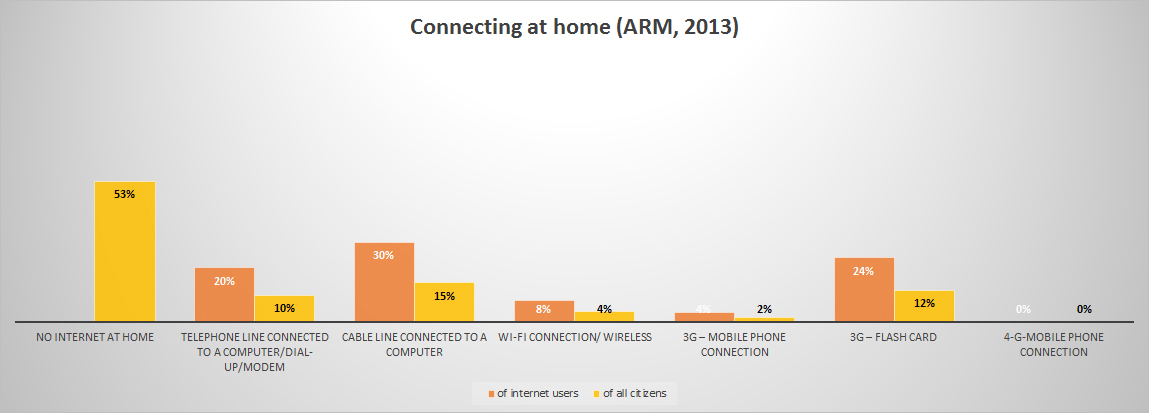The Internet Cafe is dead – most Armenians get online at home
More from the new Alternative Media USAID-CRRC dataset.
Most Armenians are getting online (primarily) from home. (I wish that it had had some sort of ranking or estimate of hours, but it is what it is.)
And how do people get online at home? Cable, 3G flash card, and still dial up (I can do a breakdown by urban/rural if people are interested.)
I’ll do another post about mobile Internet in the future.



